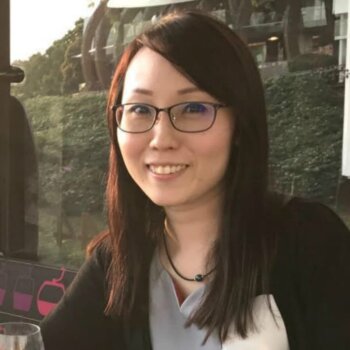Chang Chew Soon is the founder and CEO of Soft Space. Having more than 14 years of expertise in the field providing innovative technology for the financial and payment industry, he gained experience in his leadership roles, managing businesses as a Country Manager (Indonesia), CTO and Founder of a technology company, Chilliwire Technologies which was eventually acquired by a larger group. Just before founding Soft Space, he was the Technical Director in one of the largest advertising agencies in Malaysia. A graduate of Staffordshire University, he earned both his Masters Degree in Software engineering and Bachelor of Science in Computing. His passion for technology has been the driving force behind Soft Space Sdn Bhd where the acceptance of card payment can be made using almost any device, anywhere, anytime, securely!
The Asian Entrepreneur is privileged to have Chang Chew Soon for a sit down interview today.
Tell us what do you guys do at Soft Space?
Soft Space is a mobile payment technology company that provides white label solutions to acquirers and banks which is both EMVCo (Europay, MasterCard & Visa) Level 1 and Level 2 certified.
How did Soft Space start?
It all started when I was having dinner one day with my father. My father runs a motorcycle spare parts distribution business which relies heavily on its sales force of 7 people to collect orders and cash payment on daily basis for its operations.
For the longest time, my father hasn’t been able to convince the banks to provide him with mobile EDC (Electronic Data Capture) terminals due to the cost associated and also business model required by the bank which couldn’t be met by most small medium enterprises business owners.
And when one of the salesman fled away with a lot of cash on hand, I decided to incorporate Soft Space and provide a low cost effective technology to address this gap in the market.
Who did you guys market to initially?
Initially, Soft Space tried very hard to market the solution the local financial institutions in Malaysia and it wasn’t received well by them. However, it is the merchants who has an immediate need and requirement for such payments channel are the ones who got very excited over it. The merchants then recommended and pushed the banks to look into the mPOS solution.
And how did you guys market it?
We initially approached the banks via various channels, and one of them was through the card schemes such as Visa and MasterCard who are also working closely with us to promote the solution. Since our first launch with Kasikornbank Thailand, the news quickly spread out across Asia hence banks noticed Soft Space and has been enquiring about us ever since. We’ve also been featured in various media such as magazines, appearing in TV talk shows and even participating in award events which also gave us tremendous exposure.
Was funding an issue?
For any startups, the ability to boot strap with limited funding is always key. We’re always struggling to keep our operational costs low, while the payment industry requires a lot of certifications and compliances continues to challenge us where there are heavy costs associated with it.
How did you guys overcome the funding issue?
We decided to venture out to look for an investor. However, we refrained ourselves from dealing with venture capitalists and wanted an angel investor instead whom shares our vision yet at the same time willing to give us the flexibility to operate independently without too much interference.
Tan Sri Vincent Lee saw the potential in us and believed in us, where he then invested USD650,000.00 (RM 2 million) in to Soft Space as the seed funding which gave us the mileage that we need in order for us to achieve our certifications and to secure our very first contract with a bank.
Was security ever an issue for you guys?
Yes, security has been the number one concern for every potential client that we came across. EMV Level 2 certification was the mandatory certification required in order for any financial institutions to adopt Soft Space’s solution, and we obtained our EMV certification back in August 2012, making us the first in Asia Pacific to receive such certification for our kind of solution.
Apart from certification, Soft Space went the extra mile by incorporating additional protection methods to ensure that the banks are comfortable in the security of the solution. Thus our centralized EMV processing is one of the differentiator of our solution.
Tell us about the payment market in Asia.
The payment market in Asia is very vibrant, closely regulated and at the same time fragmented as well. Each country has its own policies and guidelines, where policy makers such as Central Banks monitors closely on all upcoming payment technologies to ensure the integrity of the industry is uphold.
In many emerging economies in Asia, the infrastructure are yet to be matured. Therefore the traditional payment methods such as the EDC terminal has not managed to serve the majority of businesses.
Do you find the market here vastly different compared to the West?
Yes very much, especially when it comes to payments. In Asia, most regulatory bodies and policy makers will only issue payment licenses to financial institutions such as banks, where as in the West we could see that the policies are a lot more encouraging to foster third party payment processors/providers. Due to the higher credit card fraud rate in Asia in comparison to the West, financial institutions and consumers place a lot of thought into ensuring payments are secured.
How have you guys dealt with competition?
We mainly focus on what we do best, which is the technology itself. Many times, we’ve managed to differentiate ourselves with our competitors by the uniqueness and superiority of our technology when it comes to EMV processing. Also, the second differentiating factor was our business model as well. We aim to be a technology enabler such as banks/acquirers to offer our mPOS solution.
How is it like working on Soft Space?
Working in Soft Space has given me a tremendous opportunity to work with various group of people from different backgrounds. It is very challenging to manage a company of 30, especially while we are slowly growing and moving away from the startup environment by putting processes in place, however at the same time we need to maintain a balance of fluidity as well. Often, we are required to make quick decisions and not all of them are fully informed decisions and that keeps us on our toes and the adrenaline rushing.
Anything you’ve been unhappy about so far in the process of starting Soft Space?
While we are the first to launch this in Asia Pacific with Kasikorn Bank in Thailand, I had mixed feelings about it as while I was extremely happy that we launched with the largest acquiring bank in Thailand, but yet at the same time regretted it wasn’t on Malaysian soil with a local Malaysian bank.
What does the future hold for Soft Space?
We have currently secured contracts for deployments with multiple banks within the Asia region until 2014, and Soft Space will continue to cover as much market share as possible in the coming years. Soft Space aims to be the leader in the mobile payments industry by enabling as many financial institutions as we can to our mobile payment platform.
Can we expect new products in the pipelines?
We have had many feature requests from our clients, and a few that is key and worthy of mention is the support multiple payments channels such as electronic wallets, online payment gateways.
What are some important lessons you’ve learnt that you could share with our readers?
I’ve learned that humility goes a long way, and it is extremely important that we remain humble and maintain the appetite to always learn from others. There will always be someone who will be better in what you do, and to acknowledge that fact and turn it into a positive drive will go a long way.
Why do you do what you do?
As a geek myself, I get a lot of joy and pleasure being able to work on the forefront of mobile payment technologies. What drives us is that we’re able to see the society benefiting from our technology, using it in their daily lives and helping them grow their business.
How can entrepreneurs improve and better their results?
In my personal opinion, to use the word “resourceful” to describe an entrepreneur is an understatement. Being an entrepreneur means that while coping with extreme pressure, we have to keep a positive attitude and project out positive energy to the people working around us. I always actively keep a close eye on the community, and often try to study and learn from my fellow entrepreneurs, exchanging strategies and even collaborate if possible.
What are some principles or values that guide you?
In Soft Space, I place the interest of the company above my own. I often preach about being honest and always uphold our integrity as a human being. We are in the business of payments, and the need to maintain our reputation far exceeds any of form of monetary gain if it means we have to do something that goes against our conscience. Be humble, and have lots of friends. Always remember the people that helped you in the past, and never bite the hand that feeds you.
Any parting words of wisdom for our readers?
I would like to thank the Asian Entrepreneur Magazine for this opportunity, and my thoughts goes out to all the entrepreneurs in the world and no matter what challenges you may face, keep a positive attitude and success will come your way.
Connect with Chang Chew Soon and Soft Space today:
Website: http://www.softspace.com.my/
Linkedin: http://www.linkedin.com/company/soft-space
Facebook: https://www.facebook.com/MySoftSpace



































